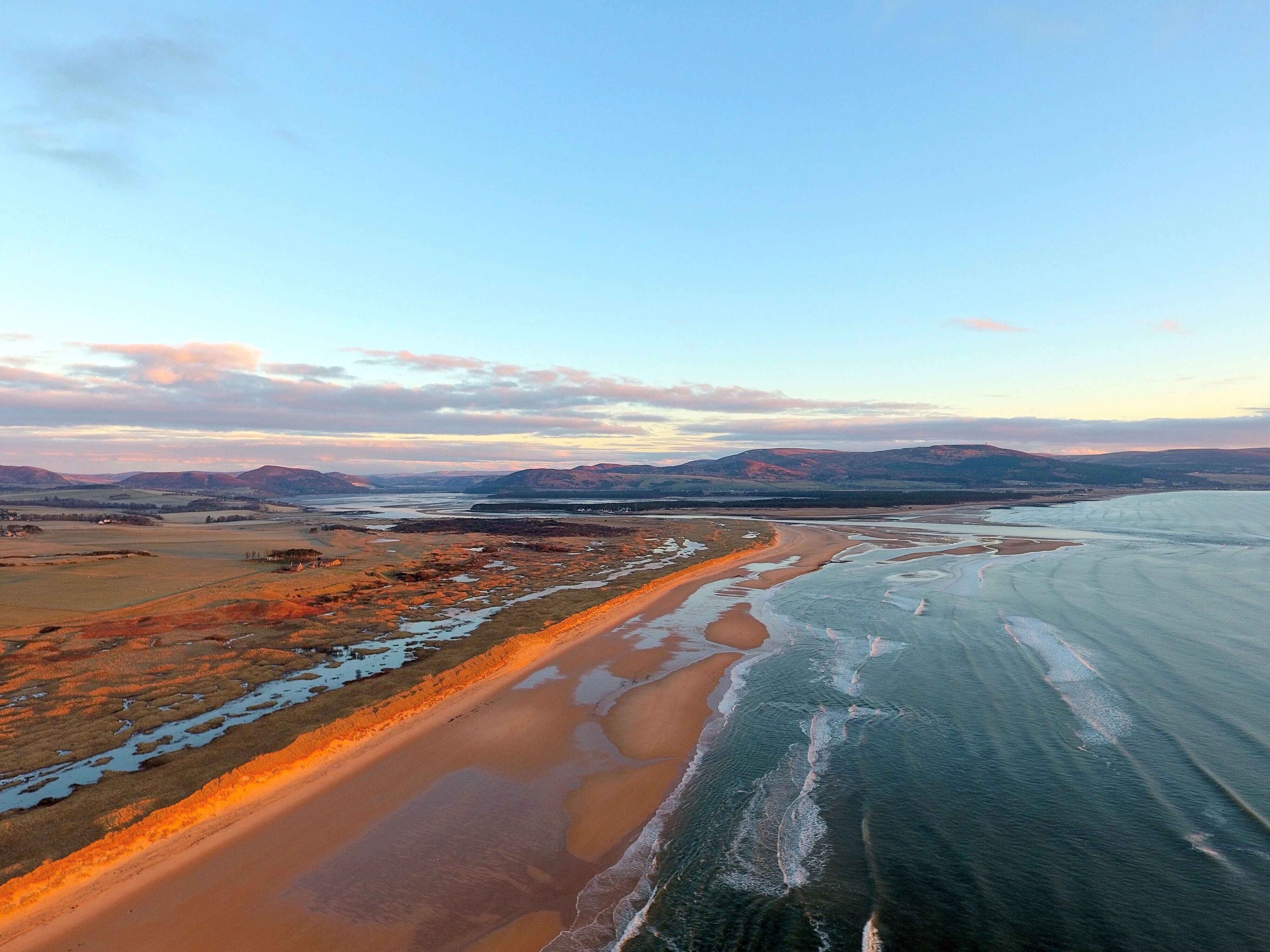20
A coalition of nature charities including Butterfly Conservation is battling plans to put a golf course on an internationally-important wildlife site for the second time in 10 years.An application to create the leisure facility at the Coul Links site on the east coast of Scotland will be discussed at a public inquiry starting on Monday (11 November).The threat to this precious place has shocked many across Scotland and the coalition is working together to oppose the plans. The coalition is made up of Butterfly Conservation, Buglife Scotland, Marine Conservation Society, National Trust for Scotland, Plantlife Scotland, RSPB Scotland and the Scottish Wildlife Trust.Butterfly Conservation Head of Conservation for Scotland Dr Tom Prescott said: “The importance of the site for its butterflies and moths was highlighted in Scottish Ministers’ refusal of the original application, stating that the application site contains an unusually rich assemblage of butterflies and moths, including rare species. Little has changed with the current application and it is widely recognised that we are now in a nature and climate emergency. A fully-protected site rich in wildlife is not the place to develop a golf course.” Coul Links is a unique and beautiful windswept place on the East Sutherland coast. The natural landscape of rolling sand dunes is home to rare plants and animals including the globally-endangered Fonseca’s Seed Fly.The dunes also support one of the largest colonies of Northern Brown Argus butterfly in the UK and provide shelter to Small Blue, Portland Moth and Lyme Grass moth.The application site also sits within three legally-protected nature zones: a nationally important Site of Special Scientific Interest (SSSI), an internationally significant Special Protection Area (SPA) for birds and a Ramsar site which means it is an internationally-important wetland.Craig Macadam, Conservation Director of Buglife said: “If approved, these plans will threaten the unique assemblage of plants and animals that call Coul Links home. Fonseca’s Seed Fly is a unique Scottish species, and as the only place in the world where it occurs we have an international responsibility to protect it for future generations. Extinction is forever, there is no second chance. Scottish Ministers must throw out damaging plans for a golf course at Coul Links that will see this species lost from a large proportion of its global range.”This is not the first time this precious sand dune habitat has been threatened with development: in 2020, following a public inquiry, the Scottish Government turned down a similar application at Coul Links because of the potential lasting impact, citing 'significant adverse effects' on protected habitats and species.This new application for an 18-hole golf course was submitted in 2023. Despite objections from hundreds of people, conservation organisations and the Government’s own advisors at NatureScot, the Highland Council’s planning committee narrowly voted against the recommendation of their own planning officers and voted to approve the application. Thousands of people from across Scotland called on the Scottish Government Minister to ‘call-in’ the application, which was successful. The application will now be reviewed at the public inquiry this month and Scottish Ministers will then decide whether to approve it.Anne McCall, director of RSPB Scotland said: “We are facing a nature and climate emergency, with wildlife being pushed to the brink. The protection of places like Coul Links will be crucial to Scotland’s efforts to halt and reverse declines in nature. The value to nature of Coul Links has been long established, we need to ensure that such places can be enjoyed by future generations. This is not the right place for a golf course, and planning decisions need to reflect the Government’s commitment to protecting nature for people in Scotland.”At next week’s hearings, the Conservation Coalition will present evidence, explaining why they oppose the development of this important site and why such a golf course proposed would have significant adverse effects on habitats and wildlife.Alistair Whyte, Head of Plantlife Scotland said: “Sites such as Coul Links are legally protected for a reason – because they are refuges for some of our most threatened wildlife. If Coul Links is turned into a golf course, none of Scotland’s protected sites will be safe. Wildlife is facing huge pressures on all fronts, which means we need our protected wildlife havens more than ever.”Jo Pike, Chief Executive of the Scottish Wildlife Trust, said: “We strongly oppose the application to build a golf course on Coul Links. This unique site is a vitally important place for nature and has protection at both a UK and international level. If the development of a golf course is approved, we believe it will irreparably damage wildlife and send a message that these protections do not matter. “Scotland is one of the most nature-depleted countries in the world and action to address this is urgent. The Scottish Government has set a target of protecting 30% of our land and seas for nature by 2030. Having recently promised the creation of a Natural Environment Bill, the Scottish Government must now show that these words will be followed by strong, positive action for nature – and protect incredibly special places such as Coul Links.”For more information about the history of Coul Links and the coalition visit the coalition web page here.How you can help Butterfly Conservation.
A coalition of nature charities including Butterfly Conservation is battling plans to put a golf course on an internationally-important wildlife site for the second time in 10 years.
An application to create the leisure facility at the Coul Links site on the east coast of Scotland will be discussed at a public inquiry starting on Monday (11 November).
The threat to this precious place has shocked many across Scotland and the coalition is working together to oppose the plans. The coalition is made up of Butterfly Conservation, Buglife Scotland, Marine Conservation Society, National Trust for Scotland, Plantlife Scotland, RSPB Scotland and the Scottish Wildlife Trust.



If there’s money to be made the planet has to take the backseat, that’s just how it is. /s
Gosh what terrible custodians we are.